The MFA Women’s Football Department kicked off the UEFA Playmakers sessions in July, while highlighting the fruits of the pathway developed toward finding and developing the next generation of players in Malta. The full circle was made as the Polidano family shared their own experience with the sport, with growth of the acceptance of the women’s game highlighted in the contrast between Lucia Polidano’s path to that of Dorianne Theuma, as observed first-hand by Lucia’s mother, Rodianne Polidano.
First Wins & Full Circles
The foundations for bringing up the next generation of female footballers in Malta were laid several years ago and continue to be fine-tuned to adapt to the changing landscape.
Lucia Polidano is a player coming up the ranks at Hibernians. However, her footballing story thus far is one that paints the picture of how the pathway, designed by the Malta Football Association Women’s Football Department, can bring forth players into the landscape who may have never laid foot on a football pitch otherwise.
“Martin and I were never into football, except maybe watching the World Cup or EURO, it was not really our thing,” Lucia’s mother, Rodianne Polidano, explained.
However, the two parents, Rodianne & Martin, were intrigued when Lucia started attending the UEFA Playmakers Programme organised at school, with one of the teachers remarking their daughter’s enthusiasm for football.
Having never followed much of the football scene, the parents asked about the next steps that would allow their daughter to continue pursuing a sport she seemed to be enjoying and enrolled her in the ‘After Schools’ programme.
Rodianne Polidano reminisced her daughter’s excitement, “She was telling me, mum I want to go, I really want to go. In truth, it’s easy enough because she stayed a bit longer at school and practiced the sport so we went for it. She used to come home really happy and it was great for us to see, despite us never having been much interested in the sport before. We started enrolling her in the Football Festivals as well in the holidays, because she wanted to be involved in anything related to football. We just kept following her lead.”
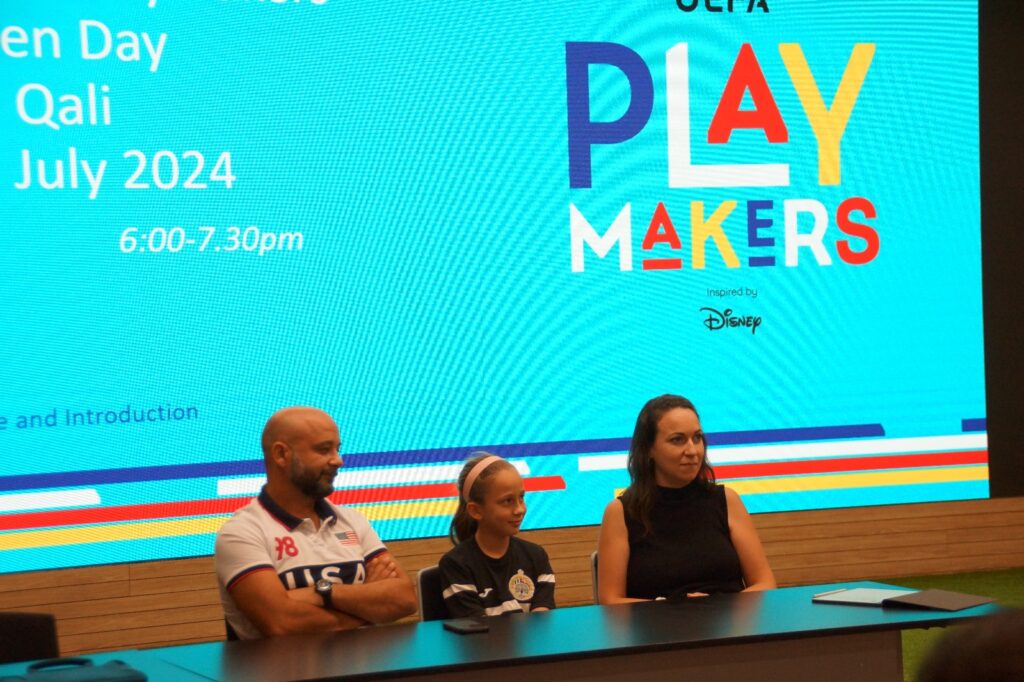
As their daughter’s enthusiasm for football kept growing, the parents acknowledged the support from the MFA’s Women’s Football Department leaders, Pierre Brincat and Dorita Agius, who encouraged them to take her to the next step: enrolling in a club. The closest to home was Hibernians, the emblem which Lucia now dons when she’s playing football.
The parents explained that the enthusiasm for football continues to grow in their daughter, and that the commitment to football is as high as that to the academics at school. Listening to eight year old Lucia speaking attested to this.
Having never much given stock to football before, the Polidano’s reminisced the excitement of taking their daughter to take part as a ball-girl during the UEFA Women’s Nations League promotion finale match between Malta and Latvia, underlining the joy in seeing the national team players inviting the ball-girls in the celebrations.
The full circle was complete as Rodianne Polidano shared an anecdote from her own childhood that summarises the growing acceptance of women’s football in Malta.
She said, “Growing up I came from the same village as Dorianne Theuma, we used to play in the same street. I never cared much for football, but I remember Dorianne always with a ball and never being let into the ground because it was still considered a boy’s sport. She’s retired now, but is one of the most successful players in Malta. However, I saw how much she had to struggle to achieve what she achieved. Nowadays, Lucia and the other girls are given the opportunity, so things are changing.”
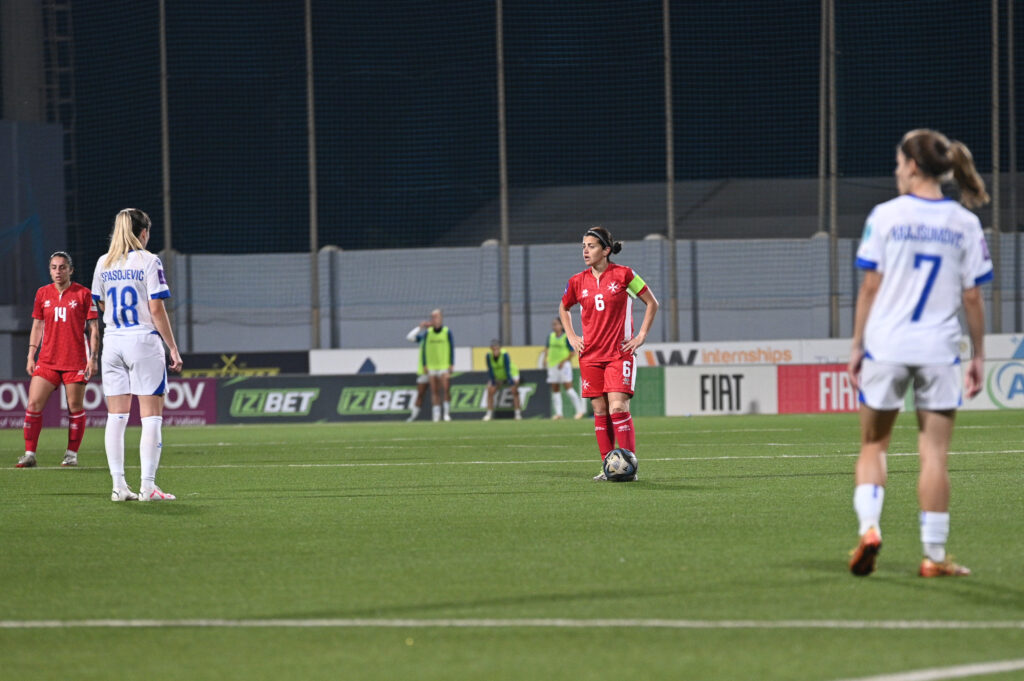
The Pathway Explained
There are several academies across the island who welcome boys and girls, twelve in total in fact: Mtarfa, Birkirkara, San Gwann, Swieqi United, Lija Athletic, Valletta, Mgarr United, Hibernians, Melita, Marsaskala, Sliema Wanderers, as well as Gozitan outfits S.K. Victoria Wanderers and Kercem Ajax.
Such mixed environments gave starts to several of today’s national team stars, including Rachel Cuschieri and Haley Bugeja, among others. However, UEFA, as well as the Malta Football Association Women’s Football Department are also cognisant of the fact that the mixed environment may not always be welcomed by all parents and children, with several potential players never getting discovered as a result. Considering this, the UEFA Playmakers programme was devised, developed in partnership with Disney and is something that has been introduced in Malta since the 2021/22 season.
The programme introduces football to young girls in a fun environment through popular stories under the Disney franchise, with the aim of creating more active and physically literate lovers of football. The Playmakers Programme is developed by UEFA. Former Maltese player, Rosalie Borg, is one of the UEFA Playmakers Coordinators for European federations. She is also one of the certified instructors by UEFA who can teach those interested in delivering the UEFA Playmakers Programme to children.
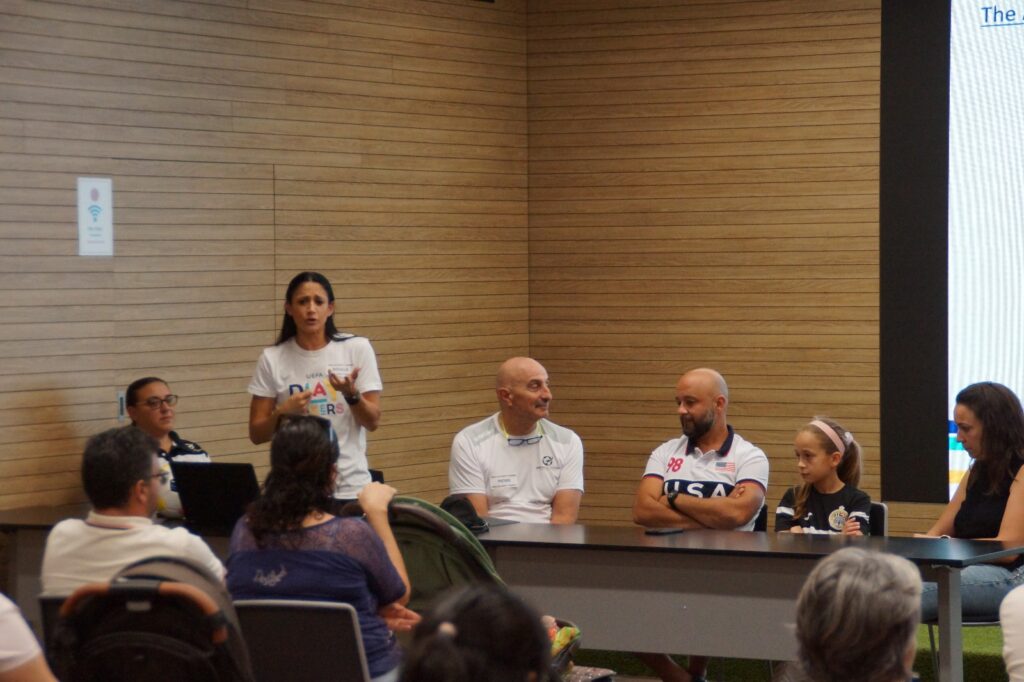
Playmakers is designed for very young girls between the ages of five and eight. Following that, if the child shows enthusiasm for the game, they can enrol in ‘After Schools’ programmes. While UEFA Playmakers Programme is more focused on movement, these ‘After School’ sessions start to focus more on basic techniques of football. Should the child’s love for the game continue to flourish, then they would be encouraged to join one of the club academies, whether in a girls team or a mixed team.

As their skills develop, the National Team Academy under the ‘Inhobb il-Futbol Foundation’ keeps tabs and calls up promising talents to be developed further alongside club development. The ultimate aim remains to develop footballers who love the game and who can put a great show of football with the aim of achieving success for both club and country.
What’s Next?
Since its beginning, 95,300 girls have taken part in the UEFA Playmakers Programme, with 64% of them being completely new to football. In Malta, the number of girls participating has exceeded 2,240, with over 93 deliverers across the islands.
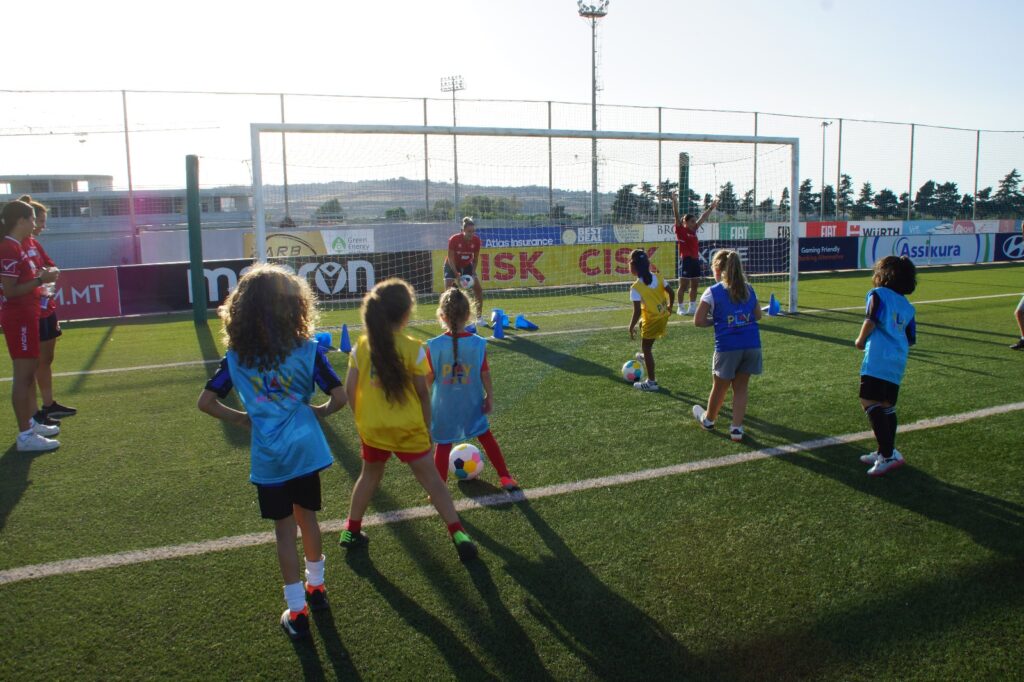
The next efforts are focused on mapping success rate in the pathway, i.e. the young footballers who make the leaps from UEFA Playmakers and ‘After School’ programmes, to the club academies and grow to be one of Malta’s leading players.
As with any aspect of child development, the results are long-term and require patience. However, Lucia Polidano is one example of how the pathway can work to bring forth players who may not be brought up in a football fanatic family, but that the child and the sport can still find each other if given the chance.
Those interested in learning more about the pathway or having any questions about enrolling their daughters into football may contact the Inhobb il-Futbol Foundation: footballgirls@iff.mt
Lead Images: Lara Schembri
Stay up to date by following The Sporting Fan on social media: Instagram ~ Facebook ~ X
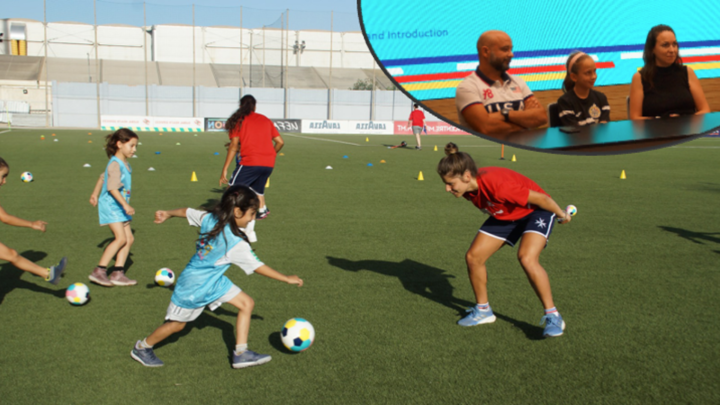
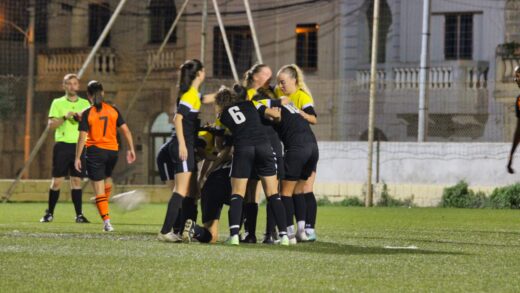
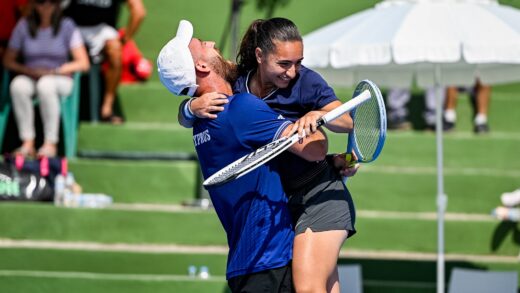
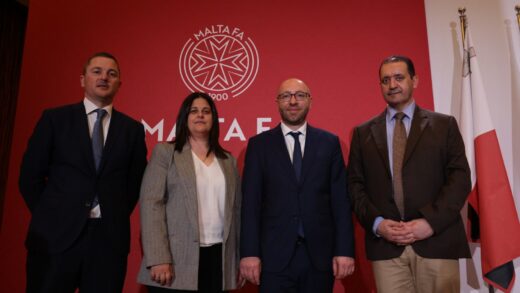
2 Responses
[…] clear path being developed to open up the opportunities for young girls to get into the sport. The pathway was covered in a separate article, where through the introduction of UEFA Playmakers and After School Programmes, as well as the push […]
[…] Birkirkara goalkeeper Maya Cachia and San Gwann’s goalkeeper Justyne Caruana. Rosalie Borg, a UEFA Playmakers Coordinator and athlete, will also give an […]